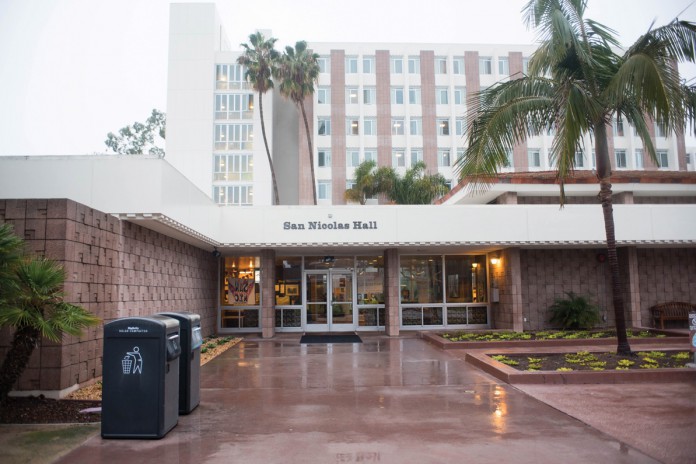Gwendolyn Wu
Campus Beat Reporter
Vice Chair of Berkshire Hathaway Charlie Munger offered the University of California, Santa Barbara $200 million for new housing, to possibly rebuild the first-year residence halls known as the Channel Islands Five (Chi-5). Munger made the announcement at the Wed., Mar. 24 meeting of the UC Board of Regents in San Francisco, Calif.
At the meeting, Munger stated that he wanted to tear down the buildings standing on a 28-acre parcel of land by the lagoon. The buildings in that area are Anacapa, San Miguel, San Nicolas, Santa Cruz and Santa Rosa Residence Halls, as well as De La Guerra and Ortega Dining Commons.
The preliminary proposal outlines two rectangular residence halls on the property, each with a roughly six-acre top floor to serve as common space. Each apartment unit would house up to eight students, with large kitchen facilities and a dining commons similar to those already on campus. There would be LED-lit artificial windows in each unit, rather than real windows. Munger said he wants the housing to be more affordable and desirable than current UCSB residence halls and Isla Vista apartments.
“By concentrating so many students in such a limited amount of area, we create what I call a lot of mutual propinquities, and mutual propinquities are very pro-education because these talented people educate one another,” Munger said. “If they’re a long way apart, they’ll live in little pods and hardly know the rest of the university.”
Some of the funds will be used to build housing for 300 couples on a separate five-acre lot. UCSB spokesperson Andrea Estrada declined to give further detail, stating that “the plan is still in its earliest stages.” Munger said that he will donate more money if development costs rise and estimates the total project cost at approximately $1.4 billion.
Munger’s gift contributes to UC President Janet Napolitano’s broader plan to increase overall UC enrollment and add 14,000 beds to universities in the system by 2020. To this end, UCSB is expected to welcome 750 additional undergraduates in the fall and will increase the size of its incoming class each year.
Campus administrators will use most funds to tackle the Long Range Development Plan (LRDP), a 15-year blueprint for expanding and remodeling buildings approved by the California Coastal Commission in 2014. The initiative aims to attract more undergraduate students and relieve overcrowding in existing housing, where first-year students often share triple rooms.
The LRDP states UCSB’s plans to build nearly 1,800 housing units — including 4,800 beds and 200 family units — for students and faculty in order to house 50 percent of students in campus buildings by 2025. As of 2015, when the plan was last updated, there were 6,652 beds in university housing and 704 student family units.
UCSB has evidently been working on this, with the completion of the Sierra Madre Apartments last fall and construction of the San Joaquin Apartments around Santa Catalina Residence Hall scheduled for completion by fall 2017.
Approximately 17 percent, or 174 acres, of UCSB’s land is housing — roughly the same amount allocated to academic buildings. The UCSB Housing & Residential Services annual report states that as of the 2014-2015 school year, 8,828 students (38 percent of the total student population) lived in residence halls, apartments or student family housing.
This would be Munger’s fourth university housing development and first undergraduate project. Previously, he donated $66 million to UCSB to construct a visiting scholar’s residence at the Kavli Institute of Theoretical Physics (KITP) at the corner of El Colegio and Los Carneros Roads, next to the San Clemente Apartments. Munger has also provided funding for projects at the University of Michigan at Ann Arbor and Stanford University.
UCSB Chancellor Henry Yang expressed gratitude at Munger’s donation, stating at the Regents’ meeting that he looks forward to planning the housing project with UC and county officials.
“He is passionate about enhancing the quality of student life by creating a second-to-none living and learning environment, integrating the two most important components of student success — academic excellence and personal well-being,” Yang said.












Comments are closed.